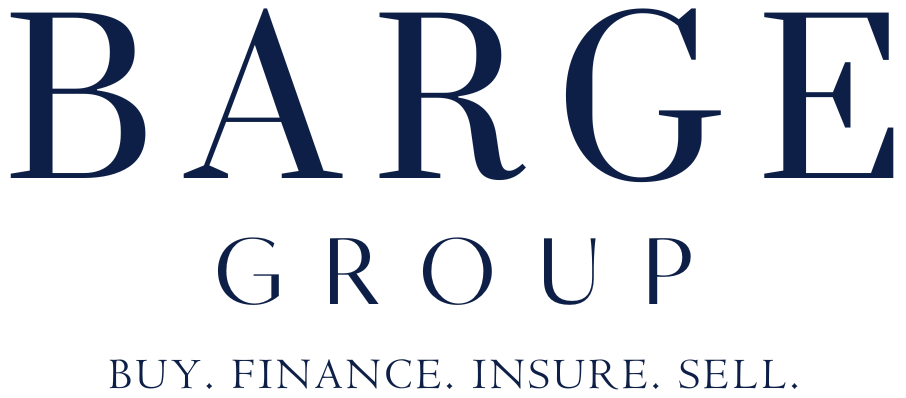
Homeownership is a significant milestone, and with it comes the responsibility of protecting your investment. Homeowner’s insurance is designed to offer that essential safety net, yet misconceptions about this coverage often lead to confusion and missed opportunities for proper protection. In this post, we’re debunking five of the most common myths about homeowner’s insurance so you can make informed decisions.
Myth 1: “Homeowner’s Insurance Covers All Types of Damage to My Home”
One of the most prevalent misconceptions is that homeowner’s insurance covers all types of damage. Many assume that a standard policy will protect them against every potential threat, from natural disasters to personal accidents. However, this is not entirely accurate.
The Reality: A typical homeowner’s insurance policy does indeed provide a broad range of coverage, including protection against damage from fire, theft, and certain natural disasters like windstorms or hail. However, it does not cover everything. For instance, flood and earthquake damage are often excluded from standard policies and require separate coverage.
Why This Matters: Understanding what your policy does and doesn’t cover is crucial to avoid gaps in protection. If you live in an area prone to floods or earthquakes, purchasing additional insurance specifically for those risks is a smart move. Working with an experienced agent can help clarify what perils are covered and recommend any necessary additional policies.
Myth 2: “I Don’t Need Home Insurance Since I Don’t Have a Mortgage”
Homeowners who’ve paid off their mortgages sometimes believe insurance is optional, and while it may technically be, it’s a costly risk to forgo it.
The Reality: Homeowner’s insurance provides significant financial security even if you own your home outright. Your home is likely one of your largest financial assets, and homeowner’s insurance helps protect it from unexpected damages that could otherwise be financially devastating. From fires to storms or theft, the costs of repairing or rebuilding a home without insurance coverage can be overwhelming.
Why This Matters: The peace of mind that comes with knowing your home and belongings are protected shouldn’t be underestimated. Choosing to skip homeowner’s insurance may save on premiums in the short term, but it exposes you to far greater risks and financial loss. For comprehensive security, maintaining a homeowner’s insurance policy is wise, regardless of whether or not you have a mortgage.
Myth 3: “My Personal Belongings Aren’t Covered by Homeowner’s Insurance”
Many homeowners believe that homeowner’s insurance only covers the structure of their home, leaving out personal possessions like electronics, clothing, and furniture.
The Reality: A standard homeowner’s insurance policy typically includes personal property coverage. This means that in addition to the structure of your home, your belongings are also protected up to a specified limit. So if a covered event like a fire or burglary damages your possessions, your policy will help reimburse you for the loss. Some policies even cover personal belongings when you’re away from home, such as if your luggage is stolen while on vacation.
Why This Matters: The limits and scope of personal property coverage vary, so reviewing your policy details is essential. Additionally, high-value items such as jewelry or artwork may have limited coverage within a standard policy. In these cases, you can opt for scheduled personal property endorsements or additional riders to ensure that specific valuables are covered more comprehensively.
Myth 4: “Homeowner’s Insurance Will Cover the Full Replacement Cost of My Home”
It’s a common belief that if something catastrophic happens to your home, homeowner’s insurance will cover the full cost of rebuilding it. However, this isn’t always the case.
The Reality: Policies generally provide either actual cash value (ACV) or replacement cost value (RCV) coverage for your home. ACV takes depreciation into account, meaning you’d only receive the current market value of your home or belongings, not the amount needed to replace them with new items. RCV policies, on the other hand, cover the cost of replacing items at today’s prices. It’s also important to know that, depending on your policy, you may need additional endorsements for full replacement coverage.
Why This Matters: Understanding the difference between ACV and RCV can prevent surprises in a claim situation. Working with your agent to determine the coverage that best aligns with your needs can make a significant difference if you ever face a claim. In areas where construction costs are high or likely to increase, opting for replacement cost coverage ensures that you’ll have the funds needed to fully rebuild.
Myth 5: “If My Friend Gets Hurt in My Home, Their Medical Expenses Are Covered by Their Health Insurance”
It’s a common misunderstanding that if a guest is injured on your property, their health insurance will cover the costs. However, their injury could lead to a liability claim on your homeowner’s insurance.
The Reality: Most homeowner’s policies include liability coverage and medical payments coverage for injuries sustained by guests on your property. Liability coverage helps cover legal expenses if you’re sued over an injury, while medical payments coverage assists with minor medical costs without involving a lawsuit. These coverages offer valuable protection in case of unexpected accidents on your property.
Why This Matters: Liability claims can be costly, and without proper coverage, homeowners could face steep legal and medical bills. Understanding and utilizing the liability portion of your homeowner’s insurance policy can provide vital financial protection if an accident occurs. Reviewing your liability limits with an agent can help ensure they are sufficient to cover potential risks.
Knowledge is Key to Proper Home Insurance Protection
In the ever-evolving world of insurance, separating fact from myth is vital. Homeowner’s insurance can be complex, but understanding the coverage it offers and the options available can ensure you’re fully protected. By debunking these common myths, you’re now better equipped to assess and optimize your coverage.
Call to Action
Here at the Barge Group, we’re here to guide you through the details of homeowner’s insurance and answer any questions you may have. If you’re ready to review your current policy or want to explore options for enhanced coverage, our experienced agents are just a call away. Contact us today for a personalized consultation, and let’s ensure that your home is protected in the ways that matter most.
